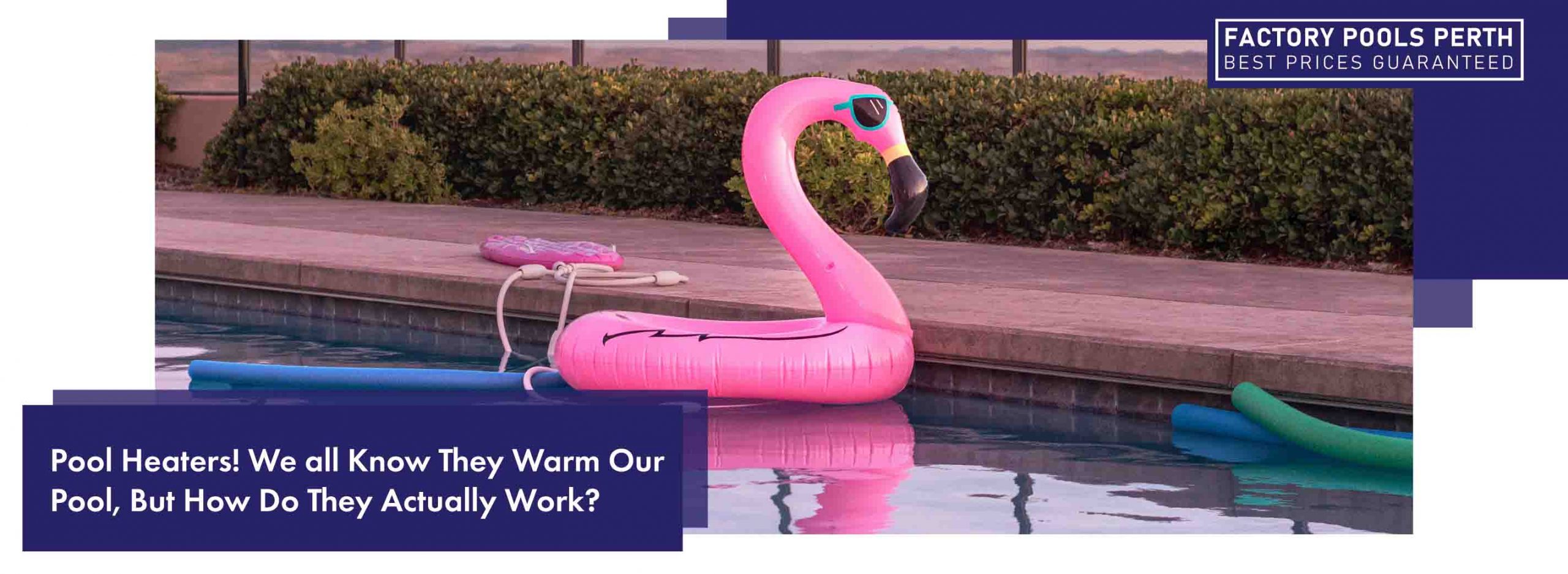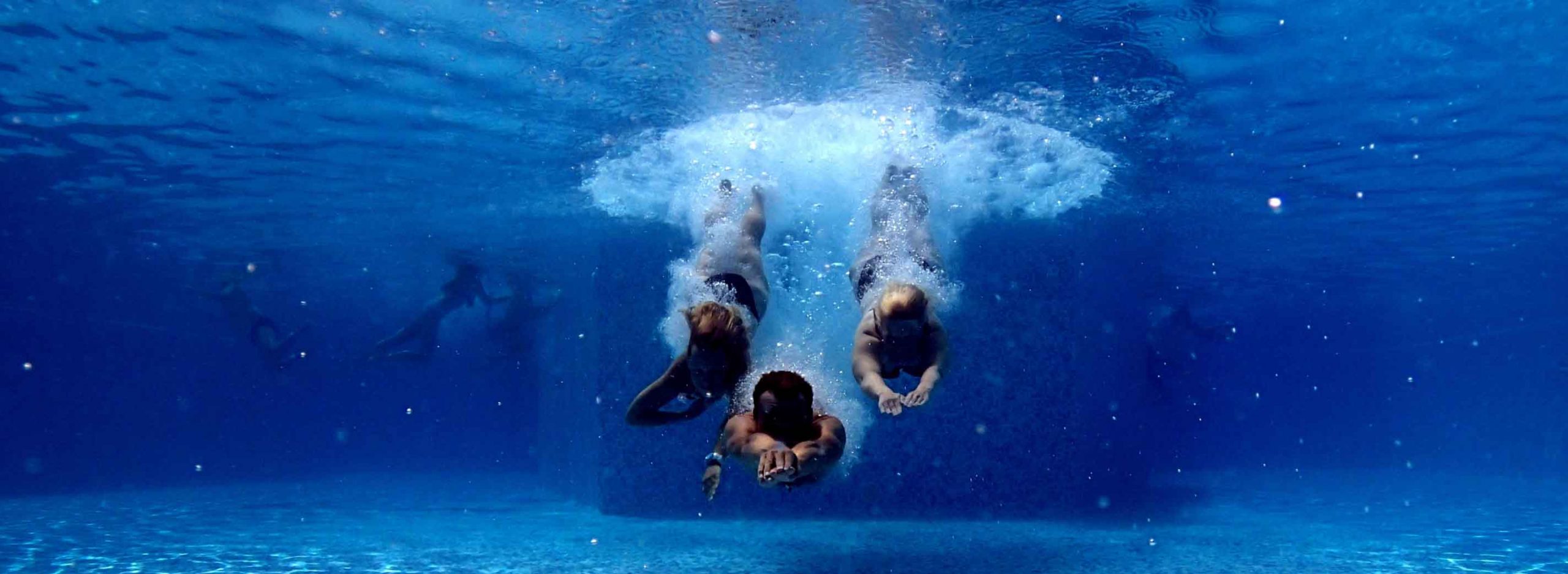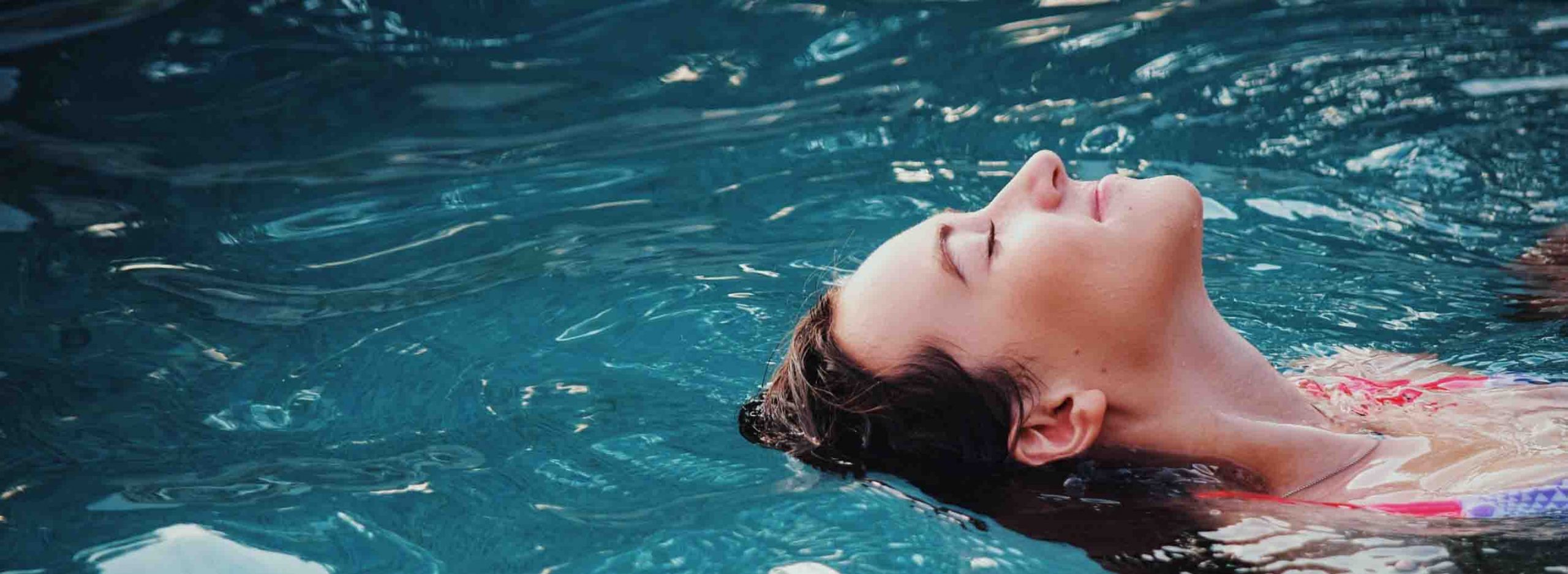Pool Heaters! We all Know They Warm Our Pool, But How Do They Actually Work?
Pool heating used to be one of those things only rich folk would have because it was considered a luxury inclusion with a high price tag. Fast forward to now, and more and more pool owners are installing it because it is much more affordable to run. Heating is a great way to enjoy more days by the pool. Here is how they work.

Heating Systems:
In terms of pool heating systems, you have three options to choose from. Below is a rundown of each and how they work:
Solar Heating
Solar pool heating has been a popular choice from the day it hit the market many years ago. The biggest selling point is that they cost virtually nothing to run once they have been installed. Utilising the sun to heat your pool, solar is an economical way to add some warmth. They work via a solar collector that is mounted on your roof. The collector consists of a series of tubes that absorb heat from the sun. Water from your pool is pumped up to the collector. The heat that’s collected from the tubes, is transferred to the water as it passes through them. The water then travels back to the pool at a raised temperature. This process is continual and will only stop when it reaches the temperature you’ve set on the digital controller or when you turn it off. Solar pool heating systems are environmentally friendly, and they usually last for around 15 to 20 years. The only negative that they have is that they need the sun to work so on overcast days, you are unlikely to achieve the warmth that you would like. This can be a hassle if you want to go for a swim, but the heater isn’t doing much to warm the water up.
Electric Heat Pump
Electric heat pumps are usually more dependable than solar when it comes to heating your pool on demand. Rather than relying on the sun to work, they capture heat from the air to heat the pool. With the heat they’ve drawn from the air, they transfer it to the outer evaporator air coil in the system. The liquid refrigerant in the evaporator coil then transforms this heated air into gas. This gas is warmed and then travels through the compressor. The heat is raised further and then diffuses through the water. You can expect an electric heat pump to last around 10 to 20 years, and they are far more affordable to run than a gas pool heating system.
Gas Heating
Gas heating is the original pool heating and has been around for decades. They are highly effective and can elevate the temperature of the pool rapidly. They work using natural gas or propane that is burned in a combustion chamber where it heats a series of copper coils. Water from the pool is drawn through this from the force of the pump. When the pool water passes through the heater, it warms as it goes before returning to the pool at an increased temperature.
Gas is a great option for those in cooler climates as it works independently without the need for an external source like the other two which need heat and sun to function. Their ability to heat the water is what sets them apart. They can elevate the pool water the fastest however they do come with some negatives, such as:
They are expensive to run. You can expect them to add an additional $300 to $500 to your monthly power bill.
Gas heaters don’t typically have the lifespan that some other heating systems do.
As gas is a fossil fuel, burning it isn’t environmentally friendly.

Alternative ways other than heaters to warm up your pool
There are a couple of other ways you make your pool warmer. Here are some of them:
Solar Pool Cover
Solar covers are a great option if your budget is tight, but you still want to boost the temperature of the pool. They typically have a bubble wrap like surface that captures heat from the sun and transfers it to the pool water. While they aren’t as effective as heating systems, they can warm your pool by up to 12 degrees. They’ll set you back around $200, and heating up your pool is not the only benefit they offer. A cover can help improve the overall efficiency of your pool by cutting down on its water and chemical consumption, it can keep your pool cleaner for longer by preventing leaf litter and other contaminants from entering the water. Not only that, but it can also help to retain heat and warm in your pool for longer. For the best heating results, we suggest pairing a heating system with a cover. A cover can prevent the heat from escaping, meaning you won’t have to run your heating for as long.
Choose a Darker Coloured Pool
Darker colours pools will naturally absorb more heat than lighter coloured versions. If you have your pool installed in a sunny location and you choose a dark colour, you can ensure that your pool warms up on sunny days.
Put in a Windbreak
Air will essentially cool your pool down, and any heat that it is has gained from the sun with be lost faster when it is windy. Putting in windbreak limits the amount of air that gets to your pool and can make getting out when wet more bearable. This can also reduce the rate that your pool evaporates too, so it’s an all-round good idea.
Install Your Pool in Full Sun
Installing your pool in full shade will no doubt make your pool cooler, so if you want your pool to be as warm as possible, installing it in a location that gets full sun during the day is a good idea.

Weighing up the pros and cons of the different pool heating solutions
If you’re deciding whether to get some form of pool heating or not, it’s smart to do your homework first. Pool heating systems can be expensive, and you want to be sure it’s the best choice for you and your swimming needs. Click here for the amazing benefits of Pool Heating! Factory Pools Perth can help you choose the perfect heating for your fibreglass pool, contact us today!


